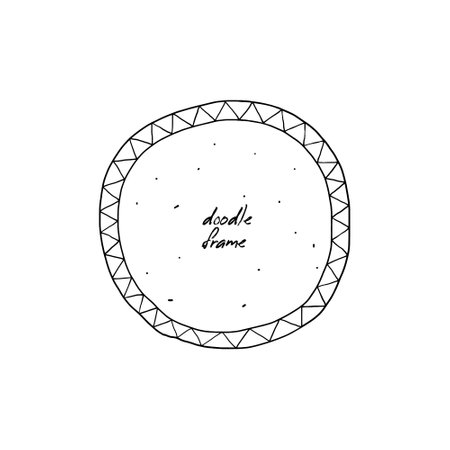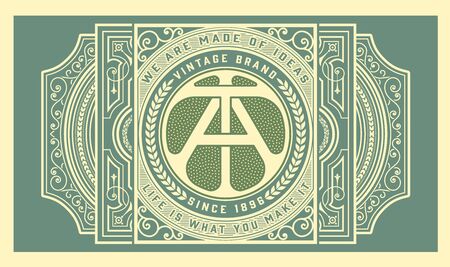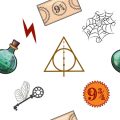Introduction: Astrology’s Influence on British Cultural Imagination
Astrology has long woven itself into the very fabric of Britain’s cultural imagination, sparking curiosity and debate across centuries. From bustling Elizabethan playhouses to the candle-lit parlours of medieval scholars, astrology was much more than a fleeting fad; it was a lens through which people sought to understand the world and their place within it. Rooted in ancient folklore and myth, the celestial arts influenced not only how Britons interpreted daily events, but also how they crafted stories about fate, fortune, and destiny. This enduring fascination found its most vivid expressions in the nation’s literature and theatre, shaping iconic works by writers such as Geoffrey Chaucer and William Shakespeare. By delving into these texts and performances, we can uncover how astrological ideas permeated British thought—reflecting hopes, anxieties, and the perennial human desire for meaning amid uncertainty.
2. Stars in the Bard’s Sky: Shakespeare’s Use of Astrology
William Shakespeare, often hailed as the greatest playwright in the English language, was no stranger to the mysteries of astrology. In Elizabethan England, belief in the influence of the stars and planets on human fate was woven into everyday life. Shakespeare masterfully embedded astrological references throughout his plays, using celestial imagery and planetary allusions to reflect the era’s fascination with destiny and cosmic order.
Shakespeare’s characters frequently consult or reference astrological signs to explain their fortunes or misfortunes. This not only reveals the prevailing Elizabethan attitudes but also allows audiences to explore questions of free will versus fate. For instance, in King Lear, Gloucester laments: “These late eclipses in the sun and moon portend no good to us.” Such lines highlight how celestial events were seen as harbingers of earthly turmoil.
The table below showcases some notable examples of astrological references in Shakespeare’s works:
| Play | Astrological Symbolism | Reflection on Fate |
|---|---|---|
| Romeo and Juliet | “Star-crossed lovers” alludes to ill-fated romance dictated by the stars | Destiny preordains tragedy despite personal choices |
| Julius Caesar | “The fault… is not in our stars, But in ourselves” | Tension between fate and personal responsibility |
| King Lear | Eclipses and planetary alignment discussed as omens | Natural order disrupted; chaos attributed to celestial influences |
| Macbeth | “By the pricking of my thumbs…” (witches and prophecy) | Supernatural forces and destiny intertwine with ambition |
Through these dramatic devices, Shakespeare painted a world where human lives are intricately connected with cosmic patterns. His frequent use of astrological language—such as referencing Mars for war or Venus for love—helped Elizabethan audiences interpret character motivations and plot developments within a framework they found both familiar and awe-inspiring.

3. Heavenly Narratives in Chaucer’s Works
When exploring astrology’s role in British literature, Geoffrey Chaucer emerges as a pivotal figure whose poetry is richly embedded with celestial symbolism. In particular, The Canterbury Tales offers a fascinating lens through which to examine medieval attitudes toward the stars and planets. For Chaucer and his contemporaries, astrology was not just a pseudoscience or superstition—it was an influential framework for understanding human behaviour and destiny.
Astrological Imagery in The Canterbury Tales
Chaucer’s frequent references to planetary alignments, zodiac signs, and astrological prognostications serve multiple purposes within his tales. For example, in “The Knight’s Tale,” the fates of Arcite and Palamon are depicted as being intricately linked to the movements of Mars, Venus, and Saturn. This usage reflects the period’s belief that celestial bodies governed earthly affairs, echoing the worldview held by much of Chaucer’s audience.
Characterisation Through the Stars
Astrology also provided Chaucer with a creative device to deepen characterisation. Pilgrims such as the Physician are described with explicit reference to their knowledge of “astronomy” (then synonymous with astrology). Such details not only highlight their education but also subtly critique or satirise contemporary reliance on astrological guidance in medicine and daily life.
The Medieval Audience’s Perspective
For Chaucer’s original readers and listeners—an audience steeped in religious tradition yet fascinated by scientific speculation—astrological references would have been immediately recognisable. The stars served both as a source of wonder and a metaphorical tool for contemplating fate, morality, and the unpredictability of existence. By weaving astrology into his narratives, Chaucer invited his audience to reflect on the balance between free will and cosmic influence, making his works resonate on both intellectual and emotional levels.
Astrology on the British Stage
Astrology has long been woven into the fabric of British theatre, reflecting society’s fascination with fate, destiny, and the mysteries of the cosmos. From the Renaissance to modern productions, British playwrights have embraced astrological imagery and motifs to explore themes of love, ambition, and human folly. Theatrical representations of astrology are not merely decorative; they serve as powerful tools for character development and plot progression.
Fortune-Tellers and Omens: Guiding Characters’ Journeys
The role of fortune-tellers and omens is prominent in many classic British plays. These figures often guide, warn, or mislead protagonists, echoing societal anxieties about the unknown. Whether it is a soothsayer forewarning Julius Caesar in Shakespeare’s eponymous play or the witches manipulating Macbeth’s fate, astrological symbols act as catalysts for action.
| Play | Astrological Element | Function in Narrative |
|---|---|---|
| Macbeth (Shakespeare) | Witches’ Prophecies | Foreshadowing, driving ambition |
| A Midsummer Night’s Dream (Shakespeare) | “Star-crossed lovers” motif | Exploring chaos and fate in romance |
| The Duchess of Malfi (Webster) | Horoscopes & Superstitions | Reinforcing tragic inevitability |
| The Tempest (Shakespeare) | Astral navigation & omens | Guiding characters to self-discovery |
The Enduring Appeal of Star-Crossed Lovers
No discussion of astrology in British theatre is complete without mentioning “star-crossed lovers.” This phrase, immortalised by Shakespeare’s Romeo and Juliet, has become shorthand for couples doomed by fate. The motif recurs throughout English drama, symbolising both the beauty and tragedy of romantic aspiration against cosmic odds. Contemporary plays continue to draw upon this trope, recognising its universal emotional resonance.
Contemporary Interpretations and Cultural Resonance
Modern British theatre has reimagined astrological themes to address present-day concerns. Today’s playwrights frequently use horoscopes, tarot readings, and celestial metaphors to question identity, agency, and belief in a rational world. Astrology on stage acts as a mirror to collective hopes and anxieties—reminding audiences that questions about destiny remain as relevant now as they were centuries ago.
5. From Page to Prognostication: Astrology’s Place in British Society
Astrology’s enduring presence in British literature and theatre is more than just a literary motif; it reflects the complex relationship between art, belief, and everyday life in the UK. Historically, works by Chaucer and Shakespeare did not merely reference astrology as a fanciful device—they mirrored genuine cultural attitudes, where planetary movements were believed to influence everything from harvests to personal destinies. But how has this literary fascination translated into wider British society, both past and present?
Theatrical Echoes in Everyday Belief
On the stage and page, characters often sought wisdom or comfort in the stars—a mirror to audiences who, in their own lives, might have consulted almanacs or listened to astrological predictions with earnest interest. This intersection of fiction and reality highlights a uniquely British approach: a blend of scepticism and curiosity, where astrology was never entirely dismissed nor fully embraced by mainstream thought.
Modern Manifestations: Horoscopes in the High Street
Today, astrology’s place in British culture is perhaps most visible in the ubiquity of horoscopes—from glossy magazines at the local newsagent to online columns read over a morning cuppa. While few take these predictions as gospel truth, they serve as social glue, sparking conversations or offering gentle reassurance during uncertain times. The tone is often tongue-in-cheek—reflecting that same blend of irony and intrigue found in classic British literature.
A Living Tradition: Literature, Theatre, and Belief Intertwined
Contemporary writers and playwrights continue to draw on astrological symbolism to explore fate, identity, and choice—echoing their literary forebears. Simultaneously, astrology remains woven into the fabric of daily life for many Britons, whether as a source of entertainment or as a tool for reflection. By examining this dynamic interplay between literature, theatre, and belief, we gain deeper insight into how astrology persists—not just as an ancient curiosity but as a living tradition shaping modern British sensibilities.
6. Conclusion: Celestial Threads in British Storytelling
As we reflect on the enduring influence of astrology within British literature and theatre, it becomes clear that the stars have always provided more than just a backdrop—they have shaped narrative arcs, deepened character development, and woven themselves into the very fabric of British cultural identity. From the allegorical references in Chaucer’s The Canterbury Tales to Shakespeare’s poetic meditations on fate and fortune, the celestial has served as both metaphor and guide, inviting readers and audiences to contemplate forces greater than themselves.
The Enduring Allure of the Heavens
In Britain’s storytelling tradition, astrology represents both an ancient wisdom and a reflection of society’s ongoing search for meaning. Characters consult the stars not only to predict outcomes but also to question their own agency, mirroring the human desire for reassurance amidst uncertainty. This fascination continues to resonate in contemporary adaptations and new works that revisit astrological symbolism with fresh eyes.
Astrology and Cultural Identity
For many Britons, astrology is part of a shared cultural lexicon—a familiar reference point that connects the past to the present. Whether seen in the playful banter about star signs or the serious contemplation of destiny on stage, these celestial motifs foster a sense of continuity. They remind us that our stories are part of a much larger cosmic narrative, one that has been told and retold through centuries of British writing and performance.
Looking Forward
As we move beyond Shakespeare and Chaucer into modern literature and theatre, astrology remains a rich source of inspiration. It encourages both creators and audiences to explore questions of fate, character, and connection—reminding us that even as times change, our gaze often turns skyward in search of understanding. The threads of astrology continue to shimmer in Britain’s stories, inviting each generation to find its own meaning among the stars.


